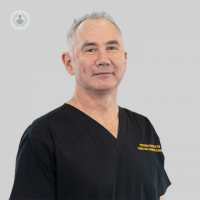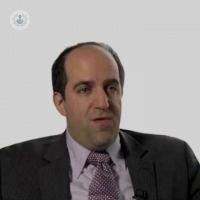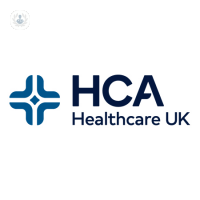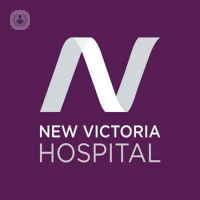What are food allergies?
Food allergies occur when the body’s immune system reacts unusually to specific foods. The body mistakenly produces an antibody when a specific food that triggers the allergy has been consumed. The antibodies start a process that releases histamine for the body to fight what it thinks is invading it. Finding out which foods are causing the symptoms can be difficult for some people and some types of allergies can take a while to diagnose.
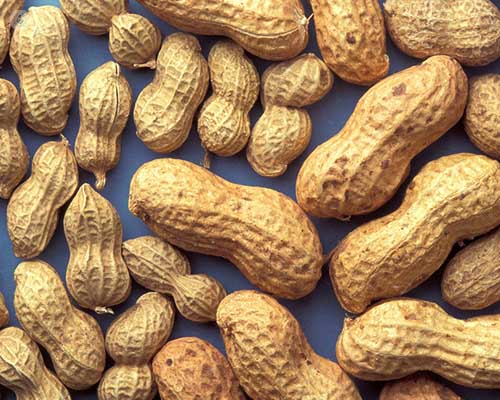
What are the symptoms of food allergies?
An allergic reaction to food can happen within minutes, or it may happen hours later. The most common signs of a food allergy include:
- Tingling and itching in the mouth
- Hives or eczema
- Swelling: lips, face, tongue or throat
- Wheezing and trouble breathing
- Abdominal pain
- Diarrhoea, nausea or vomiting
- Light-headedness
Sometimes the symptoms can be life-threatening and this type of reaction is called anaphylaxis. If someone is severely allergic to certain foods, they need to have an epinephrine (adrenaline shot) as soon as possible.
Which foods are the most common to cause an allergic reaction?
Any foods can cause allergies but the most common ones to do so are:
- Milk
- Eggs
- Nuts but peanuts in particular
- Soy
- Wheat and grains that contain gluten
- Shellfish
How are food allergies diagnosed?
It is advised to keep a food diary so that the doctor can look for any trigger foods. A food elimination diet can help in seeing if the reaction goes away. Following an elimination diet, oral food challenges can be held under medical supervision. The patient may have a radioallergosorbent blood test to see how many antibodies that their immune system makes. There is also an allergy skin test, called a scratch test.
How are food allergies treated?
It is recommended to stay away from foods that cause the food allergy. Mild allergies will go away without needing to be treated. Antihistamines can help to reduce some skin allergies and other itchy symptoms. In more serious cases, corticosteroids will reduce swelling. In dangerous cases, an epinephrine injection can reverse symptoms.
How can a person prepare for a food allergy reaction?
A specialist can suggest what a healthy and nutritious diet should consist of. It is important to check the labels and ingredients in processed foods. If prone to allergic reactions then a doctor will prescribe an epinephrine injection kit, which should be carried with the person at all times.
What is the difference between food allergies and food intolerance?
Food allergies and intolerances may have similar symptoms but are different conditions. Intolerances can cause a person to feel ill, whilst a food allergy can make someone feel unwell but can also cause a life-threatening reaction.
A food intolerance means that the body cannot digest the food that is eaten or that the digestive system is irritated by the food in question. Symptoms include bloating, nausea, gas, abdominal pain and diarrhoea.
A food allergy is when the body’s immune system sees food as an invader, which releases histamine causing reaction symptoms such as breathing problems, swelling, a drop in blood pressure and vomiting.
Food allergies
Dr Adam Haycock - Gastroenterology
Created on: 10-24-2013
Updated on: 07-28-2023
Edited by: Sophie Kennedy
What are food allergies?
Food allergies occur when the body’s immune system reacts unusually to specific foods. The body mistakenly produces an antibody when a specific food that triggers the allergy has been consumed. The antibodies start a process that releases histamine for the body to fight what it thinks is invading it. Finding out which foods are causing the symptoms can be difficult for some people and some types of allergies can take a while to diagnose.

What are the symptoms of food allergies?
An allergic reaction to food can happen within minutes, or it may happen hours later. The most common signs of a food allergy include:
- Tingling and itching in the mouth
- Hives or eczema
- Swelling: lips, face, tongue or throat
- Wheezing and trouble breathing
- Abdominal pain
- Diarrhoea, nausea or vomiting
- Light-headedness
Sometimes the symptoms can be life-threatening and this type of reaction is called anaphylaxis. If someone is severely allergic to certain foods, they need to have an epinephrine (adrenaline shot) as soon as possible.
Which foods are the most common to cause an allergic reaction?
Any foods can cause allergies but the most common ones to do so are:
- Milk
- Eggs
- Nuts but peanuts in particular
- Soy
- Wheat and grains that contain gluten
- Shellfish
How are food allergies diagnosed?
It is advised to keep a food diary so that the doctor can look for any trigger foods. A food elimination diet can help in seeing if the reaction goes away. Following an elimination diet, oral food challenges can be held under medical supervision. The patient may have a radioallergosorbent blood test to see how many antibodies that their immune system makes. There is also an allergy skin test, called a scratch test.
How are food allergies treated?
It is recommended to stay away from foods that cause the food allergy. Mild allergies will go away without needing to be treated. Antihistamines can help to reduce some skin allergies and other itchy symptoms. In more serious cases, corticosteroids will reduce swelling. In dangerous cases, an epinephrine injection can reverse symptoms.
How can a person prepare for a food allergy reaction?
A specialist can suggest what a healthy and nutritious diet should consist of. It is important to check the labels and ingredients in processed foods. If prone to allergic reactions then a doctor will prescribe an epinephrine injection kit, which should be carried with the person at all times.
What is the difference between food allergies and food intolerance?
Food allergies and intolerances may have similar symptoms but are different conditions. Intolerances can cause a person to feel ill, whilst a food allergy can make someone feel unwell but can also cause a life-threatening reaction.
A food intolerance means that the body cannot digest the food that is eaten or that the digestive system is irritated by the food in question. Symptoms include bloating, nausea, gas, abdominal pain and diarrhoea.
A food allergy is when the body’s immune system sees food as an invader, which releases histamine causing reaction symptoms such as breathing problems, swelling, a drop in blood pressure and vomiting.


Allergies in adulthood: Is it possible to develop an allergy later in life?
By Dr Raghu Raju
2024-11-20
Allergies can develop in adults, even if they weren't a problem during childhood. Dr Raghu Raju, a renowned consultant in respiratory medicine and allergy, explains which are the common adult-onset allergies and what can trigger them in this informative guide. See more


Infant feeding problems: common medical causes and how we get your baby eating again
By Dr Dhamyanthi Thangarajah
2024-11-20
Infants (birth to 12 months old) may reject food for a variety of reasons. Leading paediatric gastroenterologist Dr Dhamyanthi Thangarajah explains the signs and symptoms, the diagnostic tests and how paediatric gastroenterologists approach treatment. See more


Don’t take the risk: know your child’s food allergies
By Professor Helen Brough
2024-11-20
Allergic reactions can be scary, especially if the root cause of them is unknown. A common cause is food, but there are many kinds of foods and that can make finding the root cause difficult. To explain the process of discovering where the allergy comes from and how it is handled, leading paediatric allergist Dr Helen Brough has provided thorough answers to important questions in this article. See more


Food intolerance
By Dr Mark Austin
2024-11-20
Food intolerance can cause numerous problems, from discomfort to diarrhoea. Dr Mark Austin, a consultant gastroenterologist with over 10 years of experience, shares his expertise on this topic. See more
Experts in Food allergies
-
Dr Robert Boyle
Paediatric allergy & immunologyExpert in:
- Asthma
- Allergic reactions
- Anaphylaxis
- Food intolerance test
- Food allergies
-
Professor Adam Fox
Allergy & immunologyExpert in:
- Food allergies
- Child allergies
- Asthma
- Allergic rhinitis
- Allergic urticaria
- Anaphylaxis
-
Professor George Du Toit
Paediatric allergy & immunologyExpert in:
- Food allergies
- Asthma
- Hay fever
- Drug allergy
- Allergic urticaria
- Eczema
-
Professor Helen Brough
Paediatric allergy & immunologyExpert in:
- Food allergies
- Respiratory allergies
- Immunotherapy
- Allergic rhinitis
- Eczema
-
Dr Lee Noimark
Paediatric allergy & immunologyExpert in:
- Food allergies
- Allergic urticaria
- Asthma
- Allergic rhinitis
- Drug allergy
- See all

The Portland Hospital - part of HCA Healthcare
The Portland Hospital - part of HCA Healthcare
205 - 209 Great Portland St. W1W 5AH
No existe teléfono en el centro.
By using the telephone number provided by TOP DOCTORS, you automatically agree to let us use your phone number for statistical and commercial purposes. For further information, read our Privacy Policy
Top Doctors

Guy’s and St Thomas’ Private Healthcare
Guy’s and St Thomas’ Private Healthcare
Guy’s Hospital, Great Maze Pond
No existe teléfono en el centro.
By using the telephone number provided by TOP DOCTORS, you automatically agree to let us use your phone number for statistical and commercial purposes. For further information, read our Privacy Policy
Top Doctors

New Victoria Hospital
New Victoria Hospital
184 Coombe Lane West, Kingston upon Thames, KT2 7EG
No existe teléfono en el centro.
By using the telephone number provided by TOP DOCTORS, you automatically agree to let us use your phone number for statistical and commercial purposes. For further information, read our Privacy Policy
Top Doctors
-
The Portland Hospital - part of HCA Healthcare
205 - 209 Great Portland St. W1W 5AH, Central LondonExpert in:
- Neurological spinal surgery
- Orthopaedic spinal surgery
- Maternity care
- Pregnancy
- Scoliosis
- In vitro fertilisation (IVF)
-
Guy’s and St Thomas’ Private Healthcare
Guy’s Hospital, Great Maze Pond, SE1 South Bank LondonExpert in:
- Allergy
- Cardiology
- General Surgery
- Maxillofacial Surgery
- Thoracic Surgery
- Maternity care
-
New Victoria Hospital
184 Coombe Lane West, Kingston upon Thames, KT2 7EG, South LondonExpert in:
- Cardiology
- General Surgery
- Orthopaedic surgery
- Breast augmentation
- Pain management
- Spine
- See all
- Most viewed diseases, medical tests, and treatments
- Migraine
- Paediatric rheumatology
- Autoimmune diseases
- Joint pain
- Child nutrition
- Nutrition
- Weight loss injections
- Endermologie
- Genetic testing
- Abdominal pain



